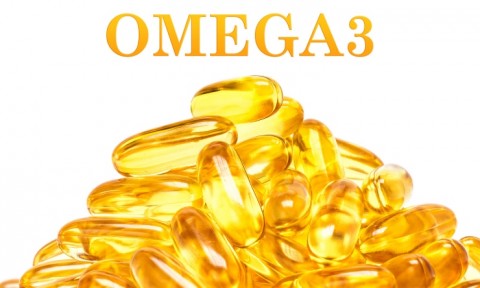DrCarney.com Blog
Part IV: Do Plant-Based Diets Need Supplementing?
It's amazing how much the media and popular culture affect our health concerns. Oil in our diet is one example. For decades no one gave a thought to their fat intake. That changed in the sixties when the American Heart Association came out with recommendations to switch from saturated fats like butter and lard to polyunsaturated oils like corn and safflower oils. Since then it's been a revolving door of medical advice about oil. Jeff Novick, MS, RD, LD, LN, has a wonderful article chronicling the history of "oil advice" over the past 50 years. Based on all the media hype about omega-3 and fish, those choosing to eat only plants, sometimes wonder how they can get omega-3.
Omega-3. Both omega-6 and omega-3 are essential fats, which means that we cannot manufacture these fatty acids in our bodies but that we must get them from our food instead. It's important that we get them in a ratio between 1:1 to 4:1. Typical cooking oils have a considerably higher ratio of omega-6 to omega-3 as seen below:
- Olive oil = 13:1
- Soybean oil = 7:1
- Corn oil = 46:1
- Palm oil = 45:1
- Sesame seed oil = 138:1
- Grapeseed oil = 696:1
- Sunflower seed oil = 19:1
Animal products and processed foods are also high in omega-6. Since the majority of people consume too much omega-6 in their diets (the American average is 10:1 or 20:1), the news spread through the media that we are "lacking" in omega-3 fatty acids.
This need not be the case. Dietitian and nutritionist Jeff Novick insists that if we eat "a healthy, minimally processed, low-fat, WFPB (whole-food plant-based), low SOS (salt-oil-sugar) diet, getting in adequate omega-3" is not a problem because the body will supply itself with omega-3 as needed from the food we provide. When we remove meat and dairy products, processed foods, and added oil from our diets and instead concentrate on a variety of plant foods, our intake of omega-6 and omega-3 fatty acids moves into the ideal ratio.
While omega-3 fatty acids are present in many plant foods, there are some which are particularly rich in omega-3. Non-GMO organic edamame, walnuts, flax and chia seeds, dark green leafy vegetables, black beans, cauliflower and winter squash are fabulous sources of this essential fatty acid.
So do we need to supplement with omega-3? Certainly not so long as we are avoiding added oil and instead eating a low-fat, whole-food, plant-based diet filled with a variety of plant foods. This blogs series, "Do Plant-Based Diets Require Supplements?" has covered protein, calcium, iron, and now omega-3. There's one more nutrient that we need to examine. Stay tuned to learn whether or not we should supplement with Vitamin B-12.
Additional Information:
(1) The Essentials On Fats In The Diet
(2) Is Olive Oil Really Heart Healthy?
(3) Oils – What the Experts Say
(4) When Friends Ask: Why Do You Avoid Adding Vegetable Oils?
(6) “Good” Omega-3 Fish Fats Make Cancer Worse
Scroll Down Page to Leave Comments

Starch-Smart Social Networking
Join our Online Support Community at DrCarney.com/community featuring Starch-Smart Discussions, Blogs and more by signing up for a free membership to Dr. Carney's Community.
Preview the "Ask the Doc!" Trailer
Your Questions Answered: In Dr. Carney's Starch-Smart® System seminars, written questions from participants are collected beforehand, protecting their privacy. In this informative video presentation, Dr. Carney shares the answer to many of those frequently asked questions - with complex scientific evidence made easy to understand. Learn the answers to what you've always wanted to ask, and so much more!
When you subscribe to the blog, we will send you an e-mail when there are new updates on the site so you wouldn't miss them.




